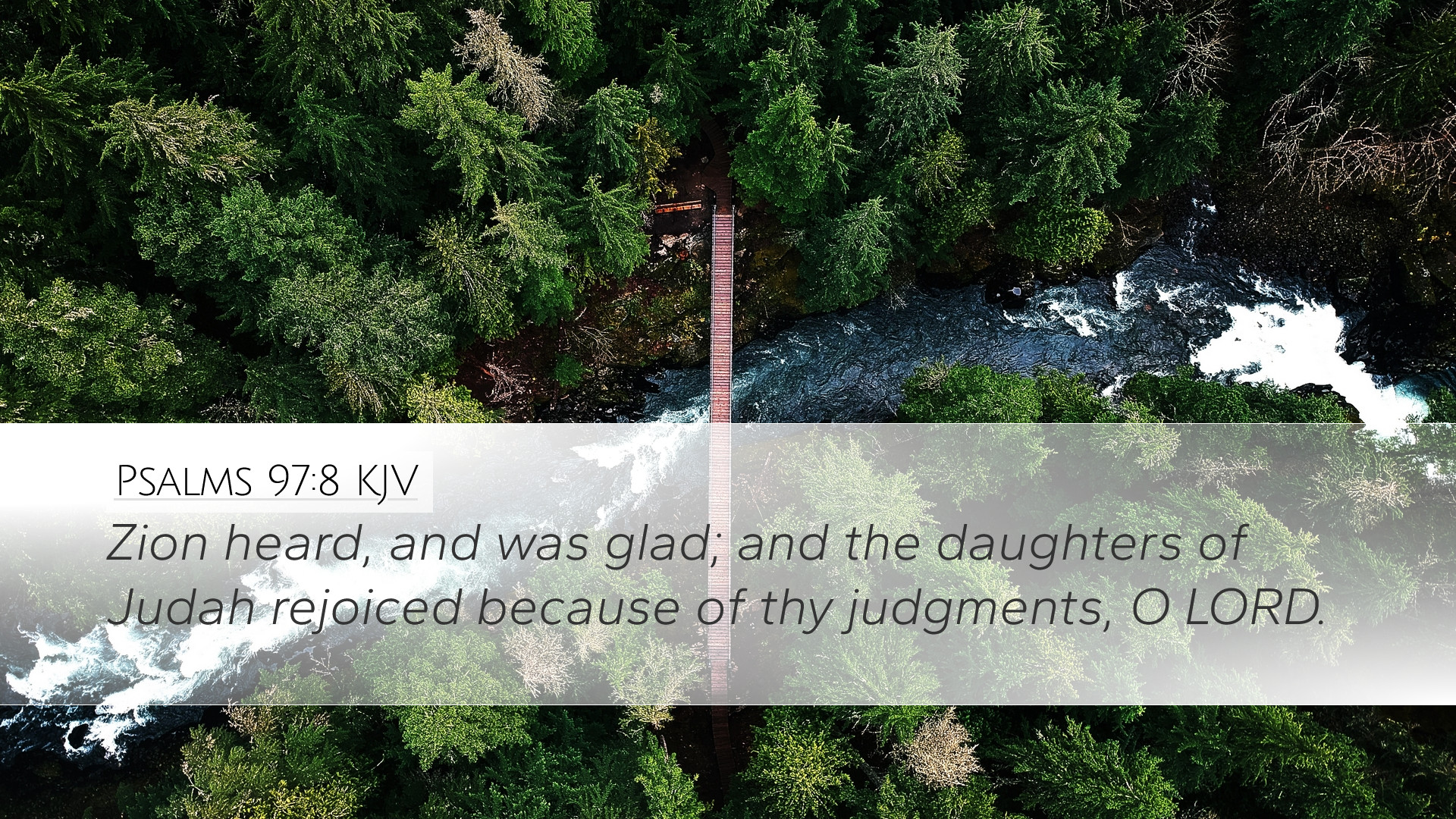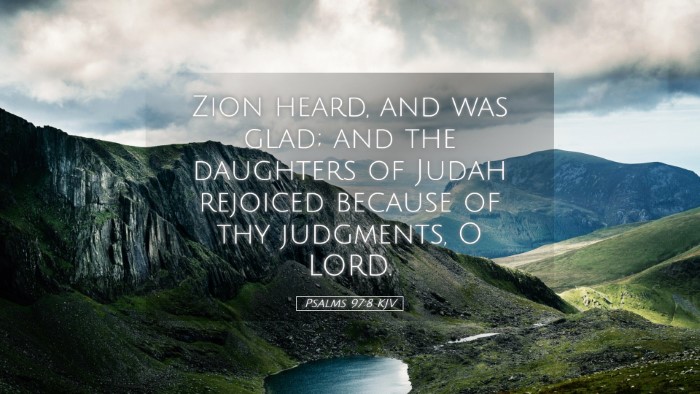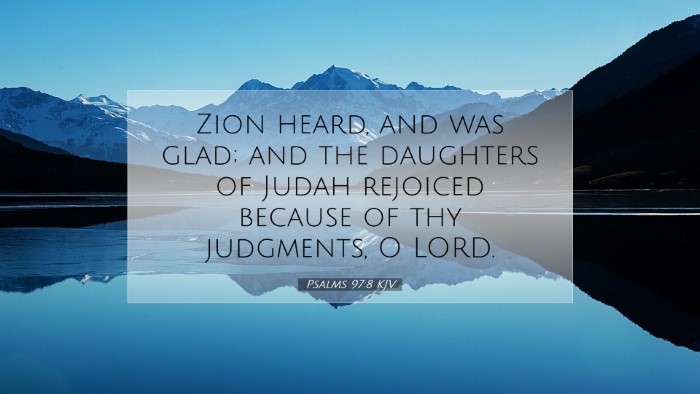Commentary on Psalms 97:8
Bible Verse: "Zion heard and was glad, and the daughters of Judah rejoiced, because of thy judgments, O Lord." (Psalms 97:8)
Introduction
Psalms 97 forms part of the Royal Psalms, which celebrate God's kingship and manifest His sovereignty over the earth. In this context, Psalm 97:8 presents a reaction to God's just judgments. This commentary synthesizes insights from renowned public domain sources, offering a compilation suited for pastors, theologians, and serious Bible students.
Contextual Background
The psalmist declares the Lord's sovereign rule, which is characterized by righteousness and holiness. The surrounding verses contribute to our understanding of the profound happiness associated with God's judgments, especially in juxtaposition with the condition of the wicked, depicted in the previous verses.
Insights from Matthew Henry
Matthew Henry emphasizes that the joy of Zion and the daughters of Judah stems from their awareness of God's righteous governance. He notes that true joy comes not from external circumstances but from an inward assurance of God's justice and mercy.
- Rejoicing in God's Justice: The gladness of Zion indicates a deep spiritual awakening to the truth of God’s just rulings.
- Implication for Believers: Believers find joy, not just in deliverance, but in the recognition that all judgments serve a greater purpose of establishing God's kingdom.
Insights from Albert Barnes
Albert Barnes provides a more detailed examination of the geographical and spiritual context of Zion. He explains that “Zion” symbolizes God's chosen people who express joy when God's judgments are executed.
- Spiritual Rejoicing: For Zion represents the community of believers, there is a collective joy that arises from witnessing divine interventions.
- Covenantal Relationship: Barnes underlines the strength of the covenant between God and His people, suggesting that as God's judgments are executed, His faithfulness to His promises is reaffirmed.
Insights from Adam Clarke
Adam Clarke elaborates on the theological significance of this verse by connecting the jubilation of Zion to the righteous nature of God's reign. Clarke's commentary delves into the emotional aspect of this joy as it relates to overcoming oppression and witnessing justice.
- Impact of Righteous Judgment: Clarke points out that the joy of Zion is distinctly linked to witnessing the downfall of the wicked.
- Anticipation of Justice: Clarke suggests that this rejoicing reflects a faith-filled anticipation of God's forthcoming acts of justice.
Theological Implications
The thematic focus on joy and justice in Psalms 97:8 prompts profound theological reflections:
- God's Sovereignty: The verse confirms the theme that God's rule is sovereign and absolute, an affirmation crucial for understanding the entirety of Scripture.
- The Role of Judgment: The relationship between divine judgment and joyful worship is further cemented – the two are not opposing concepts but rather complements in the narrative of Scripture.
- Encouragement for Believers: This scripture serves to encourage believers to await God's justice as a source of hope and rejoicing in times of trouble.
Practical Applications
For pastors and congregations, the implications of Psalm 97:8 extend into practical application:
- Encouragement in Trials: Remind congregants that patience in awaiting divine judgment leads to joy, reinforcing faith within the community.
- Teaching on Justice: Use this verse to lead discussions on what biblical justice looks like and how believers can respond to injustices in today's world.
- Promoting Unity: Emphasize the collective rejoicing of the community of believers as a picture of unity in faith and expectation.
Conclusion
Psalms 97:8 encapsulates the rhythmic relationship between God’s righteous judgments and the resulting joy experienced by His people. When viewed through the lenses of Matthew Henry, Albert Barnes, and Adam Clarke, this verse broadens our understanding and appreciation of God's sovereignty. The implications stretch far into the lives of modern believers, calling them to rejoice in the Lord's righteousness, both as an encouragement and a spiritual duty.


